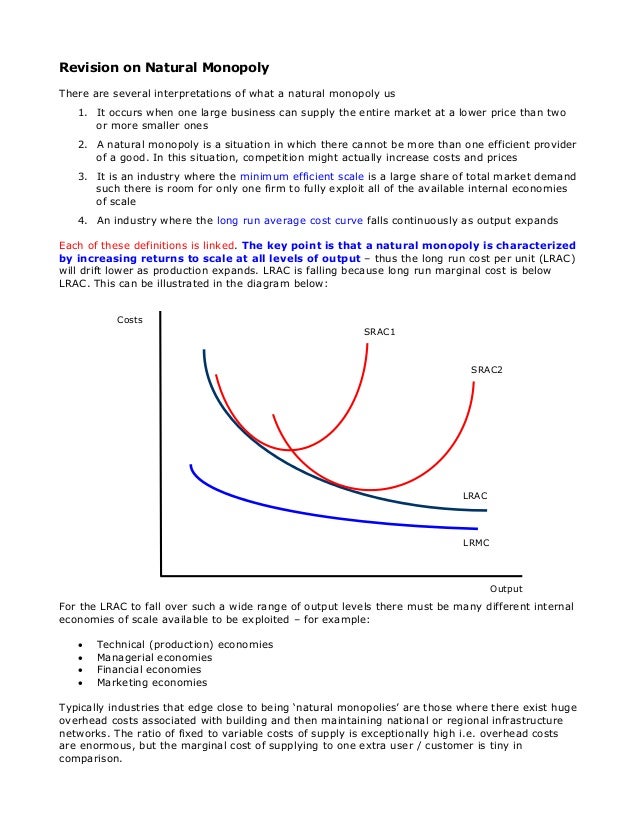


By directly operating the monopoly, government bars unfair exploitation of monopoly power by the firm. For example a railroad company, owned and managed by government, which is the sole owner of railways infrastructure in the country is a publically owned natural monopoly. Public ownership typically involves direct governemt control of the natural monopoly producing a specific public good or service. In such a situation the government may adopt one of the following two alternative approaches in order to retain the possibility of unit cost advantage of a natural monopoly as well as avoid the negatives of a monopoly: Monopolies tend to restrict supply thus inflating prices. However monopolies have the negative feature that they tend to unfairly exploit their monopolistic power if allowed to. By this logic, it is preferable for a government to allow monopolization of the market. In other words, a natural monopoly uses the economy's limited resources more productively than multiple competing firms. In naturally monopolistic markets, competition is uneconomical because multiple producers are unable to completely utilize economies of scale and this results in unit costs above the lowest possible values and thus higher prices. Pure cases of natural monopoly are rare in real world but they do exit in markets of public utilities such as power, water, telephone, railways etc. Natural monopolies typically exist when production of a product or service requires large and extremely costly infrastructure. Natural monopoly is a monopoly that exists as a result of a market situation in which a single monopolistic firm can supply a particular product or service to the entire market at a lower unit cost than what could be achieved by a number of competing firms.


 0 kommentar(er)
0 kommentar(er)
